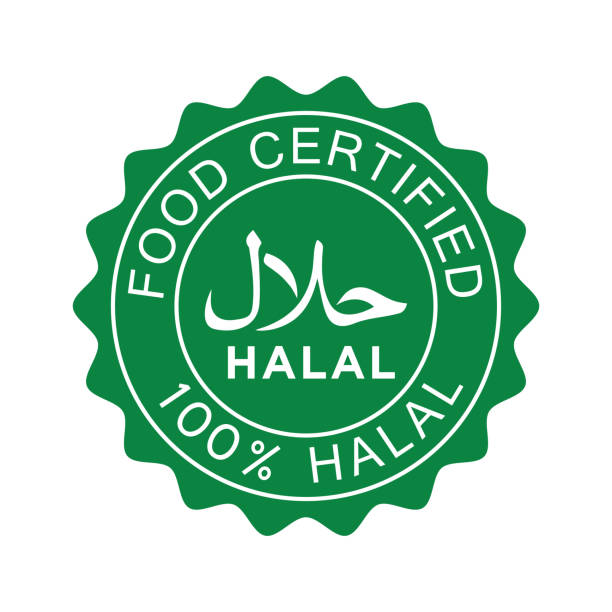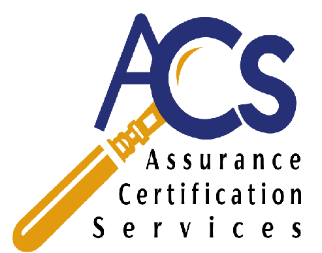Food Certification
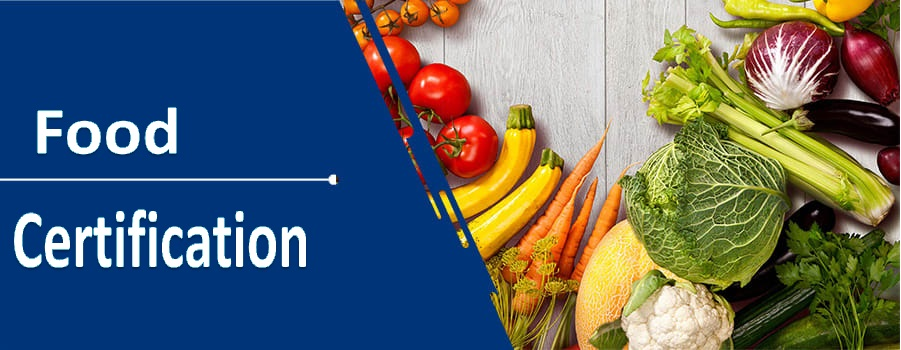
Hazard Analysis and Critical Control Points (HACCP)
What is HACCP?
HACCP is an internationally recognized, science-based, food safety system that is used to help ensure the manufacture of safe food products.
HACCP is designed to prevent, reduce or eliminate potential biological, chemical and physical food safety hazards, including those caused by cross-contamination.
Who standardises HACCP?
HACCP methodology has been standardised internationally by the Codex Alimentarius Commission which was created by the Food and Agricultural Organisation (FAO) and the World Health Organization (WHO) of the United Nations to develop food standards.
What are the benefits of HACCP Certification?
- Current and predicted hazards can be identified and removed
- Provides greater confidence in product safety
- Remedial action can be taken during production, i.e. before serious problem occur
- Control parameters are relatively easy to monitor, i.e. temperature, water activity, pH, texture…
- More cost-effective than microbiological or chemical analysis
- Operation is controlled on the premises
- All staff can be involved with product safety
- Reduced product loss
- Complementary to quality management systems, i.e. ISO 9001, ISO 22000
- Internationally recognised
- Application of HACCP system can promote international trade by equalising food safety control systems in the world.
- Ensures you are compliant with the law
- Applies to whole system not selected sampling point
- Due diligence defence in court.
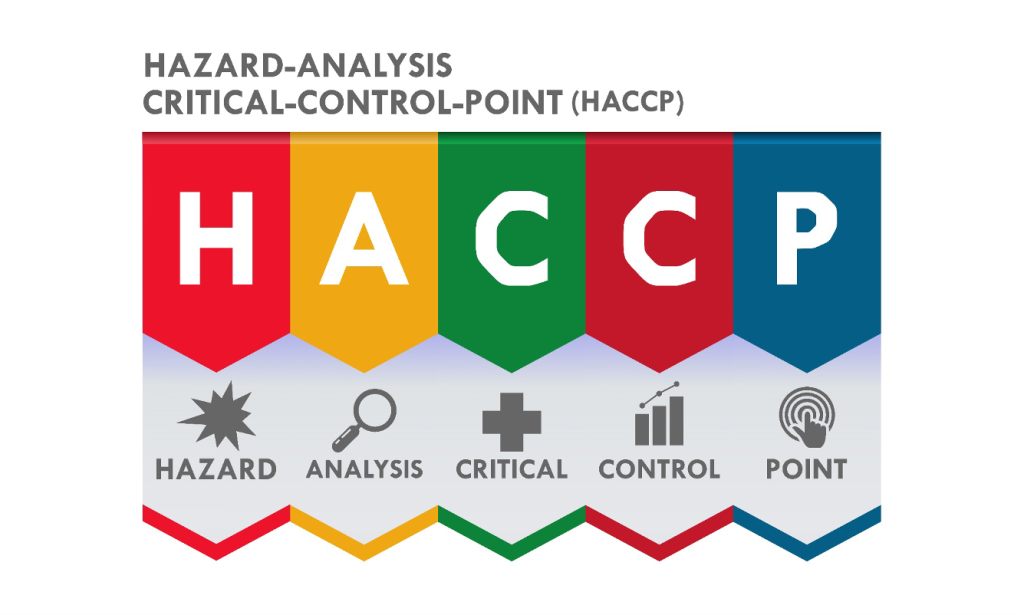
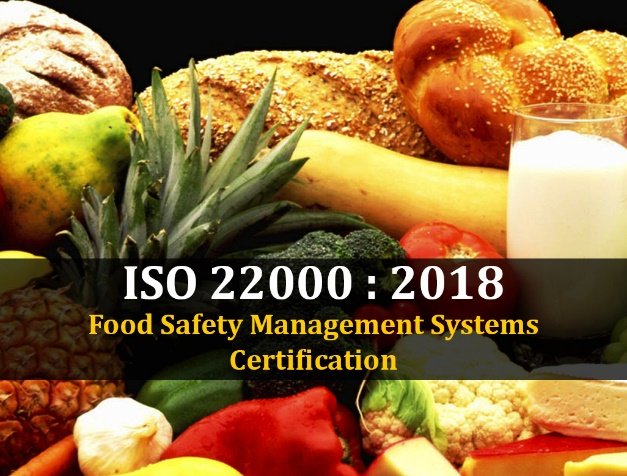
ISO-22000: Food Safety Management System
ISO 22000 sets out the requirements for a food safety management system and can be certified to it. It maps out what an organization needs to do to demonstrate its ability to control food safety hazards in order to ensure that food is safe.
FSSC 22000
What is FSSC 22000?
The Foundation for Food Safety Certification (FSSC 22000) enables auditing and certification of food safety systems of organisations which process or manufacture:
- perishable animal products (i.e. meat, poultry, eggs, dairy and fish products)
- perishable vegetal products (i.e. fresh fruits and fresh juices, preserved fruits, fresh vegetables, preserved vegetables)
- products with long shelf life at ambient temperature (i.e. canned products, biscuits, snacks, oil, drinking water, beverages, pasta, flour, sugar, salt)
- (bio)chemical manufacturing i.e. vitamins, additives and bio-cultures (but excluding technical and technological aids)
- food packaging manufacturing (i.e. direct or indirect contact with the food).
The FSSC 22000 certification scheme has been developed and is maintained by the Board of Stakeholders of the Foundation for Food Safety Certification.
What are the benefits of FSSC 22000 certification?
- International harmonisation of food safety standards
- Supply chain approach
- Uses existing, independent, international standards
- When you have FSSC 22000 in place, you automatically comply with the specifications for ISO 22000, ISO 22002-1, PAS 223 and ISO 22003
- Stakeholder approval & commitment (industry, retailers)
- In-depth and rigorous food safety audits
- Independent scheme management
- Transparency
- Non profit scheme.

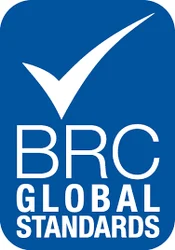
BRCGS Global Standards
Certifying to BRCGS food standards not only helps with customer requirements and legal obligations, the resulting systems, practices and procedures also improve your resilience against risk; safeguarding your business, your brand, your customers and consumers. And, implementing the standards can also help organizations realize other business efficiencies. For example, the process can identify waste reduction opportunities which, in turn, can have a positive effect on profitability and help manage environmental impact.
Using the experience and diligence that earned us our British Retail Consortium (BRCGS) accreditation, ACS has helped organizations around the world achieve the benefits of BRCGS standards:
- Robust systems demonstrating due diligence in operations and retrospective proof of compliance
- Reduced product recalls, complaints and rejections
- Reduced audit burden (BRCGS certification is recognized by many retailers around the world, so a BRCGS-certified system may meet the needs of many of your customers)
- Increased customer confidence, opening new market opportunities
Global GAP
Global G.A.P served as a practical manual for Good Agricultural Practices (GAP) anywhere in the world transferring consumer requirements into agricultural production which aims to guarantee maximum safety of the food offered by supermarkets.
The aim is to establish one standard for Good Agricultural Practices (GAP) with different product applications capable of fitting to the whole of Global agriculture.
- Promote sustainable production.
- On-farm management improvement.
- Value addition of products.
- Integrity of global accreditation system.
- Market access for small holders.
- Harmonize buyer requirements.
- Traceability system.
- Input control.
- Record keeping.
- Reduce theft of inputs.
- Promote farming as a business.
- Agronomic practices.


GLOBALG.A.P. Risk Assessment on Social Practice (GRASP)
The GLOBALG.A.P. Risk Assessment on Social Practice (GRASP) is a voluntary Add-on and ready-to-use module developed to assess social practices on the farm, addressing specific aspects of workers’ health, safety and welfare.
What is the GLOBALG.A.P. Risk Assessment on Social Practice (GRASP)
- Good Agricultural Practice is not just about products; it’s also about people.
That’s why our members developed GRASP, a GLOBALG.A.P.+ Add-on product.
GRASP stands for GLOBALG.A.P. Risk Assessment on Social Practice, and is a voluntary ready-to-use module developed to assess social practices on the farm, addressing specific aspects of workers’ health, safety and welfare
Designed to complement GLOBALG.A.P. Certification towards social aspects, GRASP measures can be assessed together with the GLOBALG.A.P. audit. A GLOBALG.A.P. - GRASP helps producers establish a good social management system on their farms. It offers buyers added assurance. And it helps protect one of the farm’s most important resources: its people.
- Advantages of the GLOBALG.A.P. Risk Assessment on Social Practice (GRASP)
- The GLOBALG.A.P. Risk Assessment on Social Practice (GRASP) can be done at the same time as the GLOBALG.A.P. audit – so minimal additional costs will be required.
- The standard is designed to:
- improve your farm social management system.
- strengthen your workers’ rights and enhances their sense of responsibility towards the farm.
- educe costs of fluctuation as it helps you retain good and qualified workers.
- reduce costs of accidents and breakdowns as it supports clear communication.
- create a positive working environment by establishing clearer terms and duties.
- encourage worker participation and so helps you innovate.
- demonstrate your commitment to social responsibility.
- raise your standing among suppliers and buyers.
- reduce your risk for social non-compliances.
GDP Good Distribution practices.
The requirements for medicinal products do not end after packaging. Patients must be assured that the quality of their medicines is maintained throughout the supply chain. Is the medication in the hospital, from the pharmacy or from the doctor still identical to the one delivered by the manufacturer?
As a company concerned, you can ensure this with the EU Guideline on Good Distribution Practice for Medicinal Products for Human Use. In focus: distribution, safety, cold chain, packaging quality and reliable, functional technology.
- What is GDP – Good Distribution Practice?
The EU Guideline “Good Distribution Practice” is aimed at companies in the wholesale and logistics sector that work for the pharmaceutical industry. It specifies the minimum requirements that their services must meet. It also aims to minimize the risks associated with the storage and transport of medicines.
Compliance with the GDP directive ensures control of the distribution chain and thus maintains the quality and integrity of medicines. GDP requires a functioning quality management system, for example according to ISO 9001. In this way, companies can supplement the specific requirements of the GDP Guideline with little effort.
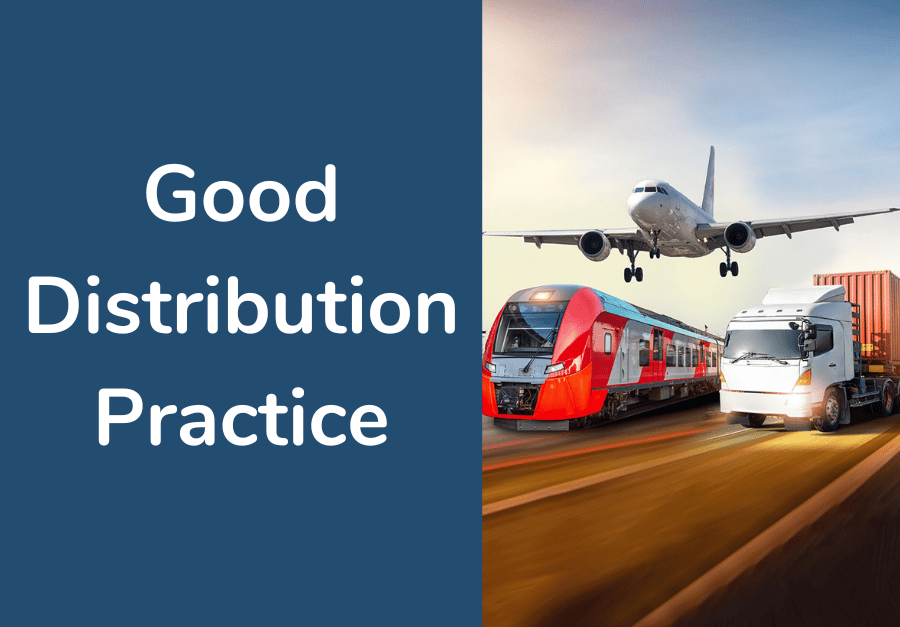

GHP Good Hygiene practices.
The GHP Certificate is important in the protection of the health of the consumer and the sustainability of the good image of the workplace by ensuring the reliability of the products, and it is an international standard that certifies that food production or sales businesses and mass consumption places operate in accordance with hygiene standards. GHP is a system that includes applications such as hygienic design and configuration of food production facilities, cleaning and disinfection methods, microbial quality of food in food processing, hygienic operation of each process step, and personnel hygiene. In short, it is to provide all the conditions necessary to produce safe food.
Increasing expectations for safe food brought along many applications. It is possible to increase these such as Good Agricultural Practices, Good Hygiene Practices, Good Manufacturing Practices.
Purpose of Good Hygiene Practices
In order to ensure the protection of the consumer in terms of food safety, it is to determine the rules that the food business operator must comply with from the primary production of the food to the supply to the end consumer. GHP aims to take the necessary precautions by making hygienic controls in all processes from production to storage, from presentation to sales in order to prevent the safety of foodstuffs and to prevent harm to human health.
In this context, the main issues that he handles can be listed as follows;
* Structuring and shaping production facilities according to hygiene standards,
* Measuring the microbial quality of products (uncooked foods),
* Effective implementation of disinfection and hygiene methods in the enterprise,
* Implementation of hygiene standards in all production processes,
* Bringing the personnel to hygiene standards
If we need to write under headings the place where production, sales and mass consumption are made and the hygiene rules that should be followed by the employees in this place;
* Personnel hygiene,
* Employee health,
* Work conditions,
* Facility and equipment maintenance,
* Hygiene of food contact surfaces,
* Pest control,
* Waste removal,
* Water quality,
* Storage of cleaning materials and cleaning and disinfection materials
* Personnel hygiene
* Hand hygiene
* Workplace code of conduct
* Prevention of cross contamination.
GHP Relationship with Other Standards
GHP Good Hygiene Practices is a complementary standard to GMP Good Manufacturing Practices. It also complements the GCP Good Catering Practices standard for catering, restaurants and cafes. GHP Good Hygiene Practices, Hazard Analysis and Critical Control Points are accepted as the prerequisite of the HACCP Food Safety Management System. Today, the Turkish food system is moving towards a reliability approach where quality systems such as HACCP and GMP are applied.
Halal certificate
Halal Certification Of Product Against Pakistan Halal Standards- PS-3733
ACS certifies the organizations in food chain as per Pakistan Halaal Standard (PS 3733) i.e Halaal Food Management System Requirements for Any Organization in Food Chain & or compliance to Organization of Islamic Countries’ General Guidelines on Halaal Food (OIC/SMIIC-1).
